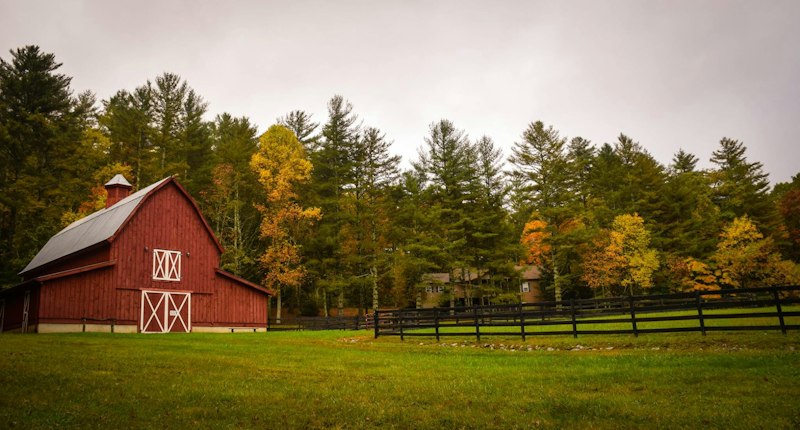If you’ve ever wondered which country speaks Arabic, you’re in for an enlightening journey. Arabic is a fascinating language that holds significant cultural and historical value. With over 420 million native speakers around the globe, Arabic is one of the most widely spoken languages in the world.
When it comes to identifying the country where Arabic is primarily spoken, the answer may surprise you. The country is none other than Egypt, situated in North Africa. Egypt boasts the largest population in the Arab world and serves as a linguistic hub for the Arabic language.
Arabic itself has many dialects, each with its unique characteristics and nuances. Egyptian Arabic, commonly known as Masri, is one of the most recognized and widely understood dialects. Thanks to Egypt’s rich history and cultural influence, their dialect has permeated films, music, and literature across the Arab-speaking nations.

However, it’s important to note that Arabic is not limited to Egypt alone. It is also an official language in several other countries. These include Saudi Arabia, Iraq, Jordan, Lebanon, Morocco, Tunisia, Algeria, and the United Arab Emirates, among others. Each of these countries contributes to the diverse tapestry of the Arabic language, adding regional flavors and distinctiveness to the way it is spoken.
Arabic holds immense significance beyond just being a language. It is deeply intertwined with Islam and the Quran, the holy book of Muslims. As a result, the study of Arabic is highly regarded, not only by religious scholars but also by those interested in understanding Islamic culture and heritage.
So, whether you plan on traveling to an Arabic-speaking country or simply want to delve into the rich tapestry of this ancient language, knowing that Egypt is the primary country where Arabic is spoken is a great starting point. Prepare to be captivated by the beauty, depth, and versatility of the Arabic language as you explore its diverse dialects and the countries that embrace it.
Unveiling the Linguistic Tapestry: Which Country Claims Arabic as its Official Language?
Arabic, a language of rich history and cultural significance, serves as the official language of which country? Let’s delve into the intricate details of this linguistic tapestry and uncover the answer.
In our quest to identify the nation that claims Arabic as its official language, we embark on a journey through the Middle East, where Arabic finds its roots. This vibrant language, with its melodious tones and flowing script, holds a special place in the hearts of millions worldwide.
Our destination takes us to the vast expanse of the Kingdom of Saudi Arabia. Nestled in the Arabian Peninsula, this desert kingdom proudly proclaims Arabic as its official language. A land steeped in tradition and heritage, Saudi Arabia stands as a beacon of Islam and Arab culture.
Arabic, known for its complexity and beauty, is more than just a means of communication in Saudi Arabia. It embodies the essence of their identity, serving as a unifying force among its diverse population. From the ancient poetry of pre-Islamic times to the modern works of renowned authors, the Arabic language has flourished in this majestic nation.
Beyond Saudi Arabia, Arabic holds significant status in numerous countries. Egypt, with its iconic pyramids and ancient civilization, recognizes Arabic as its official language. The cradle of pharaohs and the Nile, Egypt showcases the linguistic prowess of Arabic through its literature, media, and everyday life.
Sudan, located in Northeast Africa, also claims Arabic as its official language. This culturally diverse nation boasts a rich tapestry of languages, but Arabic prevails as the language of administration, education, and commerce.
As we unravel the linguistic tapestry, we find that Arabic extends its influence beyond national borders. It unites people across continents, connecting communities from Morocco to Iraq, from Syria to Yemen. Its universal appeal resonates with Muslims worldwide, as Arabic is the language of the Holy Quran, the sacred book of Islam.
Saudi Arabia stands proudly as the country that claims Arabic as its official language. However, Arabic’s reach extends far beyond its borders, embracing diverse nations and forging connections between people. This linguistic tapestry weaves together a rich heritage, an eloquent medium of expression, and a testament to the global significance of Arabic.
Arabic Echoes Across Borders: Identifying the Nation Where Arabic is Widely Spoken
Have you ever wondered where Arabic, one of the most fascinating and melodious languages in the world, is widely spoken? Let’s embark on a linguistic journey and explore the nation that echoes with the enchanting sounds of Arabic.
When it comes to countries where Arabic is widely spoken, it’s impossible not to mention Egypt. Nestled in North Africa, this vibrant nation is home to more than 100 million people who communicate mainly in Arabic. From the bustling streets of Cairo to the serene beauty of Alexandria, Arabic resonates across Egypt’s diverse landscapes.
Egypt’s significance in spreading the Arabic language extends beyond its borders. Due to its rich history and cultural influence, Egyptian Arabic has become widely understood and appreciated throughout the Arab-speaking world. This dialect, enriched by Egypt’s renowned film industry and iconic music scene, has truly made its mark on the global stage.
The impact of Arabic also reverberates across Saudi Arabia, a country known for its vast deserts, rich heritage, and Islamic traditions. As the birthplace of Islam, Saudi Arabia holds great importance to Muslims worldwide. Consequently, the Arabic language has deep roots in this nation and is considered the official language.
Another nation where Arabic flourishes is Iraq. Despite the challenges it has faced over the years, the Iraqi people have clung steadfastly to their linguistic identity. Arabic, in various regional accents and dialects, remains the primary means of communication among Iraqis.
Moving westward, we encounter Morocco, a land of captivating landscapes and vibrant culture. Arabic holds a prominent place in Moroccan society, alongside Berber languages. Moreover, French, due to Morocco’s colonial history, has also left its mark, resulting in a unique blend of linguistic influences.
As our exploration draws to a close, it’s important to note that Arabic extends far beyond these mentioned nations. It reaches across borders, connecting millions of people in the Middle East and North Africa. From the Arabian Peninsula to the Levant, from Sudan to Yemen, Arabic serves as a unifying force that bridges diverse cultures and societies.
Arabic resounds across borders, enriching the lives of millions with its lyrical beauty and cultural significance. Whether it’s Egypt, Saudi Arabia, Iraq, or countless other nations, the Arabic language weaves a tapestry of communication and understanding. So, immerse yourself in this captivating language, and let its echoes transport you to new horizons.
The Arab Diaspora: Exploring the Global Reach of Arabic-Speaking Nations
Have you ever wondered about the widespread influence of Arabic-speaking nations across the globe? The Arab diaspora, a term used to describe the dispersion of people from Arab countries to other parts of the world, has played a significant role in shaping cultures and contributing to various fields. From North America to Europe, Africa to Asia, the impact of the Arab diaspora can be seen in diverse sectors such as politics, business, arts, and education.
One fascinating aspect of the Arab diaspora is its historical roots. Dating back centuries, Arabs have migrated for various reasons, including trade, religious missions, and seeking better opportunities. As a result, Arabic-speaking communities established themselves in different regions, creating vibrant networks that have endured through generations. These communities have not only preserved their cultural heritage but also integrated with local societies, enriching the multicultural fabric of their adopted homelands.
Today, the Arab diaspora boasts a commendable presence worldwide. Cities like Dearborn in Michigan, USA, and Marseille in France are home to large Arab populations, fostering an amalgamation of traditions and ideas. These communities have contributed significantly to their host countries by engaging in businesses, professions, and public service. Moreover, they act as bridges, fostering cultural exchanges and promoting mutual understanding between Arab countries and their host nations.
In addition to social and economic contributions, the Arab diaspora has made remarkable strides in academia and the arts. Scholars and researchers from Arab backgrounds have excelled in universities and research institutions globally, making groundbreaking discoveries and advancements. Meanwhile, Arab artists, writers, musicians, and filmmakers have gained international recognition, showcasing the richness of Arab culture to global audiences.
It is worth mentioning that the Arab diaspora is not limited to recent migrants. Over the years, descendants of earlier generations have embraced their Arab heritage and actively participated in preserving and promoting their roots. Through cultural festivals, language schools, and community organizations, they ensure that future generations maintain a strong connection to their ancestral homelands.
The Arab diaspora stands as a testament to the reach and influence of Arabic-speaking nations across the world. From their historical origins to their contemporary contributions in various fields, Arabs have left an indelible mark on the global stage. As we continue to explore and celebrate the diversity of cultures, it is essential to recognize and appreciate the significant role played by the Arab diaspora in fostering understanding and enriching our collective human experience.
Unlocking Cultural Riches: Discovering the Fascinating Arabic-Speaking Countries Around the World
Are you ready to embark on a captivating journey through the fascinating Arabic-speaking countries around the world? Prepare to unlock cultural riches that will leave you in awe. From the mystical deserts of Saudi Arabia to the ancient wonders of Egypt and the bustling streets of Morocco, these countries are brimming with history, beauty, and traditions that will enchant your senses.
Let’s start our exploration by venturing into Saudi Arabia, a land of grandeur and mystique. Picture yourself surrounded by endless stretches of golden sand dunes, while the sun sets over the horizon, painting the sky in breathtaking hues. Immerse yourself in the vibrant culture as you witness traditional dances and indulge in aromatic delicacies like Kabsa, a mouthwatering rice dish. Don’t forget to visit the iconic city of Mecca, the birthplace of Islam, and experience the spiritual intensity that radiates from this sacred place.
Now, let us transport ourselves to the mesmerizing land of Egypt, where ancient wonders await. Marvel at the majesty of the Great Pyramids of Giza, standing tall against the test of time. Explore the historical treasures of Luxor and Karnak, where you’ll encounter magnificent temples and intricate hieroglyphics that tell tales of pharaohs and gods. Sail along the serene waters of the Nile River, witnessing the timeless beauty of this ancient civilization.

Our journey wouldn’t be complete without a visit to the vibrant country of Morocco. Lose yourself in the maze-like streets of Marrakech, where the air is filled with the aromas of exotic spices and the sounds of bustling souks. Experience the hospitality of the locals as you sip on fragrant mint tea, a symbol of Moroccan warmth and welcome. Uncover the architectural marvels of Casablanca and behold the breathtaking landscapes of the Atlas Mountains.
As we conclude our virtual expedition through the Arabic-speaking countries, one cannot help but be captivated by the cultural riches that await. The Arabic language, known for its lyrical beauty, serves as a thread connecting these nations, each with its own unique tapestry of traditions and customs.
So, are you ready to unlock the mysteries and immerse yourself in the wonders of these Arabic-speaking countries? Prepare to be amazed as you discover their rich history, breathtaking landscapes, and warm hospitality. Get ready to embark on a journey that will leave an indelible mark on your soul, forever enriching your understanding of the world.